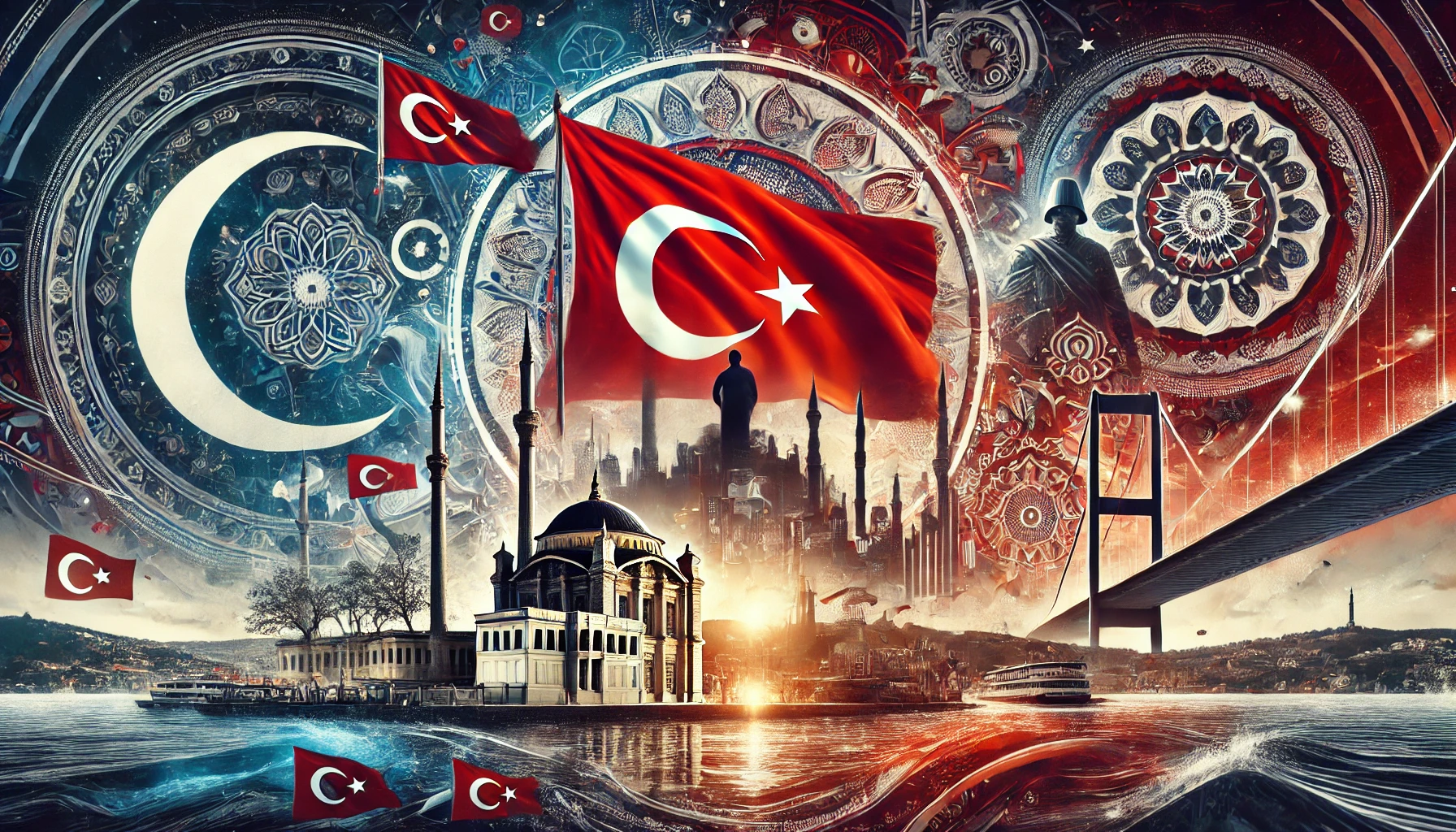Milliyet: A Deep Dive into Turkish Nationalism, Politics, and Culture
Introduction to mıllıeyt
The concept of mıllıeyt has become synonymous with Turkish identity, shaping its history, politics, and culture. From its roots in the Ottoman Empire to its influence on modern Turkey, mıllıeyt has been more than just a nationalist ideology. It has been a force that unites people, informs political decisions, and influences the arts. In this article, we’ll explore the origins, evolution, and impact of mıllıeyt, examining how it has shaped Turkey’s national consciousness, cultural identity, and political landscape.
The Origins of mıllıeyt: Historical Context
The journey of mıllıeyt begins in the late 19th century during the twilight years of the Ottoman Empire. As the empire faced decline, intellectuals and thinkers began searching for ways to unify the diverse people under its rule. At this time, the concept of nationalism started to take hold across Europe, and the idea of national identity emerged in the Ottoman territories.
The word mıllıeyt, derived from the Turkish word millî (meaning “national”), signifies the spirit of a shared cultural and linguistic heritage. In this period, figures like Ziya Gökalp were instrumental in articulating the idea of mıllıeyt. Gökalp and other intellectuals proposed that the Turkish people should unite based on a common language, culture, and history. This vision of a unified nation became a beacon for future generations of Turks, especially as the Ottoman Empire collapsed and the Republic of Turkey was born.
Key Figures and Intellectual Foundations of mıllıeyt
One of the primary figures in the development of mıllıeyt is Ziya Gökalp, often regarded as the father of modern Turkish nationalism. His ideas emphasized the importance of cultural unity, language, and the preservation of Turkish traditions. Gökalp argued that a nation could not be truly united without a shared cultural foundation.
Along with Gökalp, other intellectuals such as Yusuf Akçura and Ahmet Ağaoğlu contributed significantly to the conceptualization of mıllıeyt. Their writings and political activism laid the groundwork for the nationalist movements that emerged in Turkey during the early 20th century. These thinkers played a critical role in shaping Turkish identity during a period of immense political upheaval.
The Evolution of mıllıeyt through the Ottoman Era
During the late Ottoman period, mıllıeyt began to take shape as a tool for political and cultural survival. With the decline of the Ottoman Empire, the idea of mıllıeyt provided a sense of direction and unity for the Turkish people. As the empire’s power waned, many ethnic and regional groups began to push for greater autonomy or independence.
The emergence of mıllıeyt coincided with the rise of Turkish nationalism, which was heavily influenced by the struggles for independence in the Balkans and other parts of the empire. These events sowed the seeds for a nationalistic movement that would become central to the formation of the modern Turkish state.
As the Ottoman Empire crumbled, many of the ethnic groups that had lived under its rule began to demand their own nation-states. In this context, mıllıeyt helped solidify the idea of a Turkish national identity distinct from the multi-ethnic empire that preceded it.
mıllıeyt and Its Impact on Turkish Culture
Cultural Pride: One of the lasting impacts of mıllıeyt has been its influence on Turkish culture. From literature and art to music and media, mıllıeyt has inspired countless works that celebrate Turkish heritage. Artists and writers began to emphasize national themes, exploring the Turkish people’s unique history and traditions.
In literature, the concept of mıllıeyt inspired works that sought to define the Turkish national character. Writers like Halide Edib Adıvar and Orhan Kemal examined the complexities of Turkish identity and explored themes of unity and nationalism. Similarly, in art, Turkish painters and sculptors embraced national symbols and folk traditions, furthering the concept of mıllıeyt.
Cultural Preservation: The drive to preserve Turkish culture, language, and traditions became one of the central tenets of mıllıeyt. From the early 20th century onward, the Turkish government took steps to ensure that Turkish culture remained central to the country’s national identity. This included reforms in education, the promotion of Turkish language, and the protection of cultural heritage sites.
mıllıeyt in Modern Turkish Politics
As Turkey moved into the 20th and 21st centuries, mıllıeyt continued to play an important role in shaping political ideologies. The rise of political parties that champion Turkish nationalism is a direct result of the foundational ideas of mıllıeyt. These parties have often used nationalism as a rallying cry, appealing to the sense of pride and unity that mıllıeyt promotes.
Today, political figures in Turkey continue to invoke mıllıeyt to gain support among the population. The concept remains integral to nationalistic rhetoric, especially in times of political or economic crisis. Many politicians use mıllıeyt to unite citizens under a common banner, emphasizing the importance of national unity and cultural preservation.
Furthermore, mıllıeyt is central to discussions of national security and foreign policy. Nationalism continues to inform Turkey’s stance on issues such as immigration, territorial disputes, and its role in global politics.
Criticism and Controversy Surrounding mıllıeyt
Despite its widespread influence, mıllıeyt has not been without its critics. Some argue that the intense nationalism associated with mıllıeyt can lead to exclusionary practices and even xenophobia. Critics of the ideology point out that its emphasis on ethnic homogeneity can marginalize minority groups within Turkey, such as Kurds, Armenians, and other non-Turkish communities.
Additionally, mıllıeyt has been associated with political movements that are seen by some as authoritarian. Critics claim that mıllıeyt has been used as a tool to consolidate power and suppress dissent. This critique is particularly relevant in the context of Turkey’s political history, where nationalism has often been employed by ruling elites to justify military interventions and control over opposition groups.
Despite these criticisms, mıllıeyt remains a central force in Turkish political and cultural life. Its influence continues to shape the national discourse, even as debates about its role in Turkish society continue to evolve.
The Role of mıllıeyt in Turkish Foreign Policy
In terms of foreign relations, mıllıeyt has had a profound impact on how Turkey engages with its neighbors and the broader international community. The emphasis on Turkish nationalism has informed Turkey’s policies regarding its territorial disputes, particularly with Greece and Armenia. These disputes are often framed in terms of national pride and the protection of Turkish sovereignty.
Turkey’s relationship with the European Union has also been influenced by mıllıeyt. Nationalism has been a point of contention in Turkey’s efforts to join the EU, with European critics citing concerns over human rights and the treatment of minority groups. Turkey, on the other hand, has often framed its national identity as a source of strength and a key aspect of its unique position in the world.
In the Middle East, mıllıeyt has shaped Turkey’s approach to issues like the Syrian conflict and its relationships with countries like Iraq and Iran. Nationalism continues to influence Turkey’s foreign policy decisions, particularly when it comes to protecting national interests and asserting its role in regional politics.
Conclusion
The concept of mıllıeyt has played an integral role in shaping Turkish identity, politics, and culture. From its origins in the Ottoman Empire to its influence on modern Turkish society, mıllıeyt remains a powerful force that unites the nation under a common banner. Whether in the realm of politics, culture, or foreign policy, mıllıeyt continues to be a defining characteristic of the Turkish state.
As Turkey moves into the future, the evolution of mıllıeyt will likely continue to spark debate and inspire discussions about what it means to be Turkish. Whether embraced or criticized, the idea of mıllıeyt remains central to understanding the nation’s past, present, and future.






